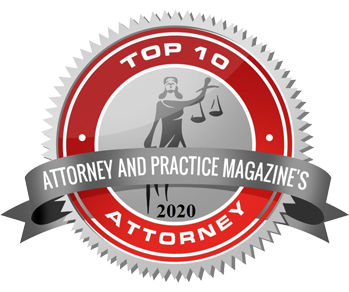What is a 2nd DUI Offense Under California Laws?
Driving under the influence of drugs or alcohol can attract 2nd DUI offense charges if you were convicted for DUI in the past ten years. If found driving with a BAC (blood alcohol concentration) of 0.08 percent or more, you will be charged under Vehicle Code 23152b. The arresting officer will first administer a breath test to determine your blood alcohol level.
One of the crucial elements of a 2nd DUI offense is intoxication. The prosecutor must prove you had alcohol in your system at the time you were driving. Law enforcement officers caution drivers of drinking alcohol when they are about to operate a motor vehicle. This is because alcoholic beverages tend to make people impaired, both mentally and physically.
Proving that you were in control of a motor vehicle at the time you committed a 2nd DUI offense is crucial for the prosecutors. Any noticeable signs of your car moving may form part of the circumstantial evidence used against you. The prosecution team may use this evidence together with your BAC results to build a case against you.
What are the Aggravating Factors for 2nd DUI Offenses?
You are at risk of facing more charges if there are aggravating factors surrounding your 2nd DUI case. The factors may include having a BAC of 0.15 percent or higher, refusing to submit to a breath/blood test and causing a car accident. You also risk facing heavier penalties for having a minor in your car and speeding at the time you allegedly committed the second-time DUI offense. The prosecution team may consider these factors depending on the following:
- The nature of your DUI arrest
- Your criminal record/history
- Prior DUI convictions
Penalties for a 2nd DUI Offense in the State of California
DUI charges qualify as either felonies or misdemeanors, depending on the specific facts surrounding each case. While most of them are misdemeanors, they may qualify as felonies if the victims suffer an injury. You risk paying fines ranging from $390 to $1,000 and facing a 3 to 5-year summary probation for a 2nd DUI offense. The judge may sentence you to jail (for a term of 96 hours to one year) or a court-approved DUI school. Your potential DUI conviction may result in a 2-year mandatory license suspension and an obligation to have an IID installed in your vehicle.
When sentenced to summary probation, the judge will expect you not to commit any future crimes. You should also comply with the state DUI laws an agree to take a breath/blood test when arrested for a subsequent DUI offense. Restitution to the injured parties may be part of your penalties for committing a second-time DUI offense. Other conditions for the probation may urge you to enroll in Alcoholics Anonymous, Narcotics Anonymous or Mothers Against Drunk Driving groups.
Alternative Sentences for a 2nd DUI Offense
Alternative sentences for 2nd DUI offenders include incarceration in a private/city jail, community service, and electronic monitoring (house arrest). They are usually less severe than conventional sentences for criminal convictions. The judge may also oblige you to live and work in a sober environment following your conviction.
Second-Time DUI and License Suspension
When you commit a 2nd DUI offense, the California DMV will be prompted to suspend your license or give you a restricted license. A restricted license allows you to drive to and from specific places as required by the DMV. Since you only have ten days to schedule a DMV hearing when arrested for a DUI, the DMV may suspend the license if this deadline passes. The court may impose a two-year suspension on your California driver’s license following a DUI conviction.
How the Prosecutor Proves 2nd DUI Charges
The prosecution team for your DUI case will focus on proving any allegations brought against you. Expect the team to work with the arresting officer and expert witnesses to confirm any pieces of evidence submitted to the court. Evidence such as your performance on field sobriety tests, testimony from the arresting officer and your BAC results may help them support their allegations. The following elements of a 2nd DUI offense must be proved for you to face a DUI conviction:
You Were Driving Under the Influence of Drugs/Alcohol
Your breath/blood samples may help the law enforcement officers to determine whether you had alcohol or drugs in your system when driving. If you are a driver of a non-commercial vehicle, you must have a BAC below 0.08 percent to avoid second-time DUI charges. The legal blood alcohol limit for underage drivers is 0.05 percent, while that of commercial drivers is 0.04 percent.
Actual Driving
DUI arrests usually take place at traffic stops once a police officer has probable cause for a driver to be drunk. A statement from the arresting officer can help prove you were in control of your vehicle at the time of your arrest. It is difficult for the officer to arrest you for DUI when you are in a parked vehicle.
Legal Defenses to a 2nd DUI Charge in California
As much as the prosecution team tries to bring allegations against you, your chances of beating them depend on the type of legal support in your favor. Consider getting a DUI lawyer to work on your case and present legal defenses to help you fight the charges. Your attorney can defend you in the following ways:
Bad Driving Does Not Equate Driving Under the Influence
Though bad driving is one of the characteristics of DUI, it does not always translate to DUI. Your poor driving pattern may be as a result of harsh weather conditions or impairment from a medical illness. A police officer may stop you for bad driving when you are sober.
Intoxication Symptoms are Unreliable for a DUI Case
Physical symptoms of intoxication may include a flushed face, red, watery eyes, and impaired motor skills. You may experience these symptoms when suffering from medical conditions such as fatigue, allergies, or eye irritation. Your lawyer can challenge any evidence to prove these symptoms by alleging that you were suffering from a different illness.
High BAC Was Due to Various Physiological Conditions
Diabetes and hypoglycemia patients tend to have falsely inflated blood alcohol content. Your blood alcohol levels may increase after consuming a lot of proteins or fasting. Using this legal defense can help you discredit the validity of any blood/breath test results brought to court by the prosecutors.
Lack of Probable Cause
Unless a police officer has probable reasons for stopping your car at a DUI checkpoint, he or she should not arrest you for a DUI. The officer must read you your Miranda rights before interrogating and having you detained. If the officer did not follow any of these procedures, your lawyer can try to advocate for the dismissal of the entire case.
Related Offenses
Offenses related to a 2nd DUI offense include first-time DUI, second DUI, and DUI causing injury. Though the legal defenses to these DUI offenses may be similar, the specific facts to each case are different. Discussed below are these crimes in detail:
- DUI Causing Injury
A DUI offense that exposes the involved party to an injury may result in a DUI causing injury" case. The prosecutor will charge with either a felony or misdemeanor depending on the severity of the accident. Penalties for this crime involves restitution to the victims, fines, HTO (habitual traffic offender) status, and jail time.
- First-Time DUI
You may face first-time DUI charges for violating either VC 23152a or VC 23152b. Possible fines for this offense range from $390 to $1,000 while the maximum jail time is six months. Other penalties include a 3 to 5-year informal probation and enrollment in a court-approved DUI school.
- Third-Time DUI
Third-time DUI charges usually stem from committing a DUI offense with a second-time DUI conviction that dates back to ten years. Penalties include informal probation, enrollment in a DUI school, jail time, and fines. You will also have the HTO status on your record and have an IID installed in your car.
Hire a Reputable DUI Lawyer Near Me
Representing yourself in a second-time DUI case may not prove effective since the case requires expert legal assistance. The possible outcomes of your case will depend on the type of legal assistance sought and the reliability of the defenses presented in court. At The Law Offices of Ross Howell Sobel, we make legal services available to residents of Los Angeles County and Los Angeles, CA facing various criminal charges. Allow one of our lawyers to handle your case by calling us at 818-582-2350 today.







